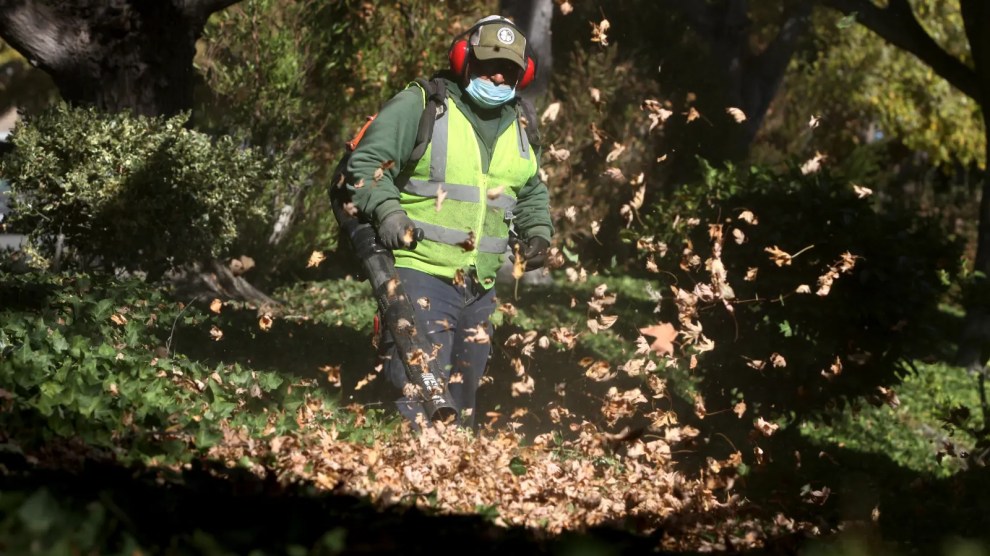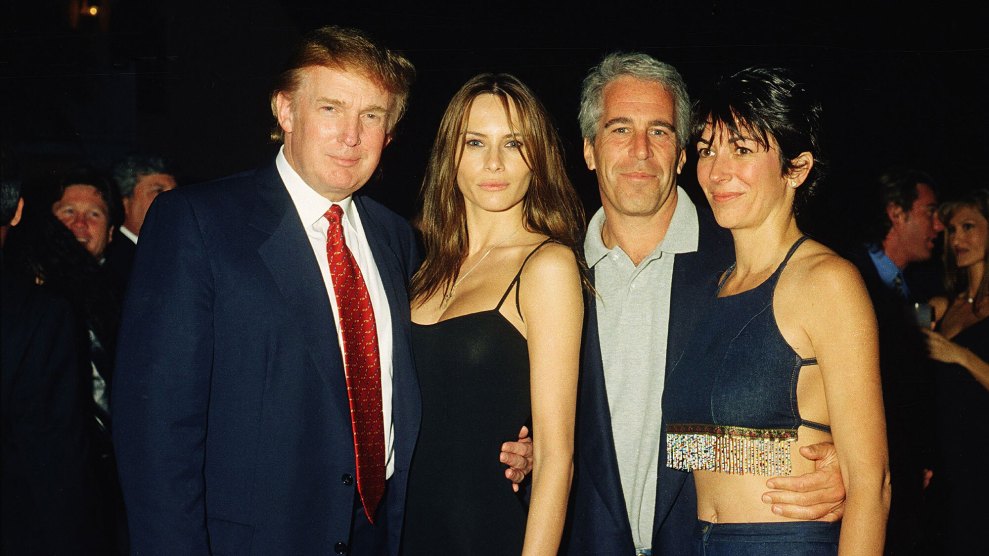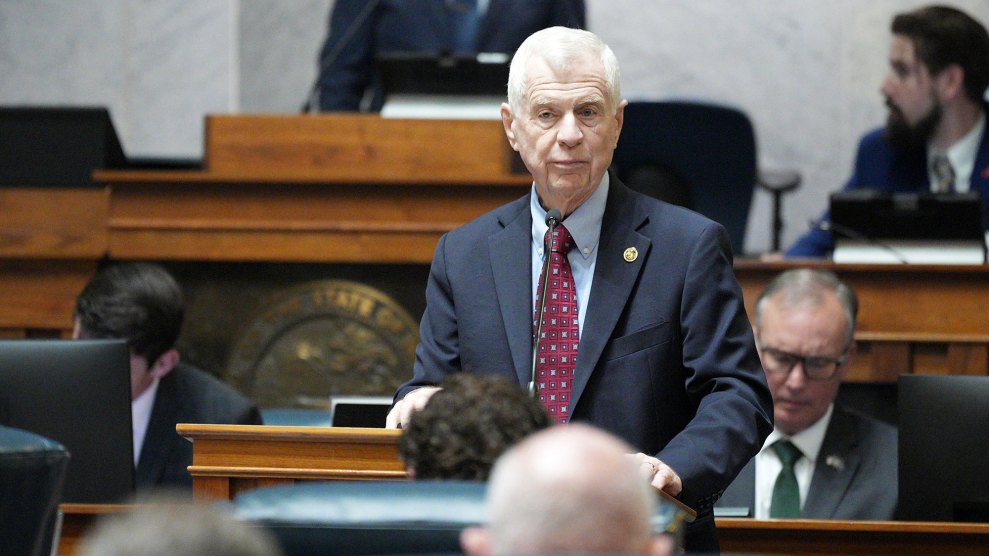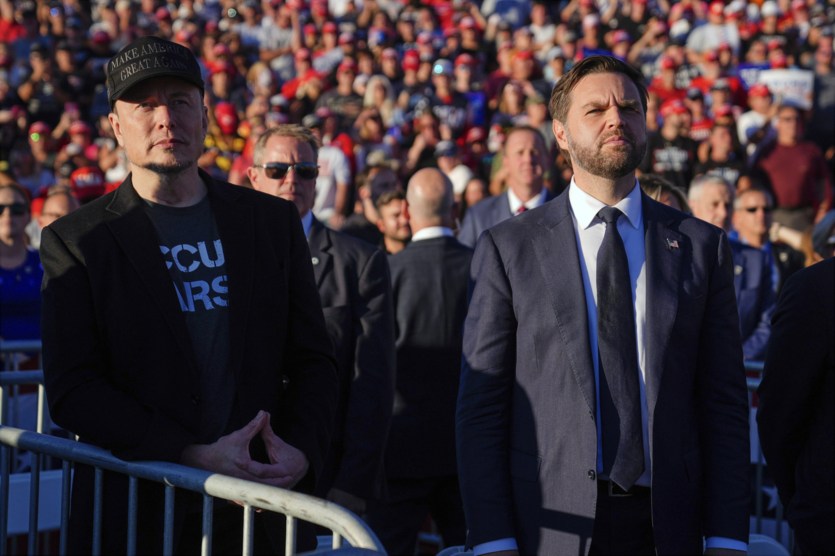EIGHT WEEKS after September 11, a pair of Americans entered the gleaming marble lobby of Beirut’s Intercontinental Hotel La Vendome, where they were greeted by a group of Iraqi expatriates. The Americans were reporters—New York Times war correspondent Chris Hedges, who’d just been put on the Al Qaeda beat, and Christopher Buchanan, an associate producer of PBS’s Frontline—there to meet a mysterious Iraqi defector with information about Saddam Hussein’s secret weapons program. Hedges and Buchanan were ushered to an elegant suite overlooking the Mediterranean, where they interviewed Jamal al-Ghurairy, an Iraqi lieutenant general who had fled Iraq. Ghurairy claimed to have witnessed foreign Islamic militants training to hijack airplanes at an Iraqi terrorist training camp.
Buchanan had been given the assignment just a few days earlier and knew very little about the interview’s subject. “It was all very hush-hush,” he says. “His life might be in danger. I didn’t know much else.” Buchanan recalls the general as thickset, “fierce looking,” and having a military bearing. “He looked the part,” he says. Hedges adds that the general “was definitely Iraqi and struck me as having spent a lot of time in the military.” The general’s entourage—including Nabeel Musawi, the political liaison of the Iraqi National Congress (INC), which had arranged the interview—“were all wearing leather coats. They were slick and well organized,” says Buchanan. “Very well organized, very well set up,” Hedges concurs.
The general hadn’t been told he’d be filmed, and it took Musawi almost an hour to persuade him to go on camera. The general himself then spent several minutes making sure his face would be blacked out when the tape rolled. The resulting television interview, for which Musawi acted as translator, was stilted and brief. It would become only a small segment of the Frontline piece, which also featured an interview with another INC-provided defector, Sabah Khodada, a former Iraqi captain whose identity was not concealed. Buchanan recalls that “as soon as the lights and camera were switched off, the general began to talk.” He says the general then spent more than an hour with Hedges in an adjoining room of the suite while he left the hotel to transmit the tape via satellite uplink. When Buchanan eventually returned to the empty suite, he found coffee cups and saucers filled with cigarette butts that he felt indicated an intense conversation. Hedges says that after the interview was completed, he “spoke to the U.S. embassy in Turkey”—where the general had fled after leaving Iraq—“and asked if the general was credible. They confirmed he had recently been debriefed.”
Two days later the story that spun out on the front page of the New York Times was as shocking as it was convincing. Ghurairy claimed that as a senior intelligence official, he had witnessed foreign Arab fighters training to hijack airplanes at the Salman Pak military facility south of Baghdad. About 40 foreign nationals, Ghurairy said, were based there at any given time. “We were training these people to attack installations important to the United States. The Gulf War never ended for Saddam Hussein. He is at war with the United States,” the Times quoted Ghurairy as saying. Ghurairy also claimed a German scientist was working in a section of the base that produced biological agents. The report noted the role the INC had in setting up the interview, but no serious questions were raised about the general’s provenance.
The impact of the article and the concurrent Frontline show, “Gunning for Saddam,” was immediate: Op-eds ran in major papers, and the story was taken to a wider audience through cable-TV talk shows. When Condoleezza Rice, then George W. Bush’s national security adviser, was asked about the story at a press briefing, she said, “I think it surprises no one that Saddam Hussein is engaged in all kinds of activities that are destabilizing.” Vanity Fair and the London Observer elaborated on Ghurairy’s claims; another version of the story appeared in the Washington Post courtesy of defector Khodada. The White House included the story of Salman Pak in its “Decade of Deception and Defiance” background paper prepared for President Bush’s September 12, 2002, speech to the United Nations General Assembly. Along with the tale of Mohammed Atta meeting Iraqi intelligence agents in Prague—another INC-hyped story—Ghurairy’s account helped establish the connection between Saddam and the 9/11 hijackers, making Iraq, like Afghanistan, a legitimate target for Bush’s war on terror.
Unfortunately, the story was an elaborate scam. The purported general had indeed met with American intelligence agents in Turkey, but unbeknownst to Hedges the agents had dismissed his claims out of hand. What the reporters also didn’t know, and what has never before been reported, is that it now appears that the man himself was a fake. According to an ex-INC official, the Ghurairy who met with the Times and PBS was actually a former Iraqi sergeant, then living in Turkey and known by the code name Abu Zainab. The real Lt. General Ghurairy, it seems, had never left Iraq.
THE MEETING BETWEEN THE MAN purported to be Ghurairy and the American reporters was arranged by two men who did not attend it: INC leader Ahmed Chalabi and Lowell Bergman, the former 60 Minutes producer immortalized by Al Pacino in The Insider, who was heading up a collaborative post-9/11 investigation for PBS and the New York Times. Bergman had interviewed the other INC defector, Sabah Khodada, but he was unable to go to Beirut, so he and Chalabi briefed Hedges at Brown’s Hotel in London before sending him on to meet Ghurairy.
Chalabi had been a source for Bergman since 1991, when, following the Gulf War, the CIA hired the Rendon Group, a public relations firm, to unite Saddam’s surviving enemies with the aim of destabilizing his regime. As part of that project, the Rendon Group created the INC. Led by Chalabi, an Iraqi expatriate who’d recently fled Jordan after being convicted of fraud, the INC was given millions of dollars to set up a large network of defectors and exiles, who, in addition to providing intelligence to the CIA, were charged with disseminating anti-Saddam propaganda in Iraq and to the Western media. With the help of Rendon, the INC began placing stories in the British press about Saddam’s atrocities. The aim was for the stories to then be picked up by the American media, thereby bypassing U.S. laws that prevented government funding of domestic propaganda.
This legal end run caused some unease at Langley—“What did they expect?” says the INC’s Musawi. “We were committed to overthrowing Saddam Hussein, not holding a tea party. We had to take some risks to achieve that.”—but it was the shoddy intelligence provided by the INC defectors (as well as an unauthorized and disastrous coup attempt) that caused the CIA to withdraw funding in 1996. “The quality was very bad,” said Robert Baer, the former CIA base chief in northern Iraq. (Baer’s memoir, See No Evil, inspired the George Clooney character in Syriana.) “There was a feeling that Chalabi was prepping defectors. We had no systematic way to vet the information, but it was obvious most of it was cooked.”
But Chalabi had won support within the GOP, and in 1998 the Republican-dominated Congress overwhelmingly passed the Iraq Liberation Act. Under its auspices, the State Department awarded the INC $17.3 million to carry out the “collection and dissemination of information” about Saddam’s misdeeds to the media. (By the summer of 2002, the INC was receiving $340,000 a month from the Defense Department to gather intelligence, though it appears the CIA remained suspicious of INC-generated information.) The head of the INC “information collection program” was Aras Habib, a Kurd who acted as the point man for meetings between journalists and defectors. Interviews took place in the Middle East, as well as in the United States and the United Kingdom, where many of the defectors had sought asylum. “I have worked with the CIA to make accessible useful intelligence, some of which we then passed on to journalists,” Habib told me in Baghdad in 2004, shortly before he reportedly fled to Iran, accused of working for Iranian intelligence.
Working beneath Habib were Mohammed al-Zubaidi and Abu Saud, who together ran a network of up to 100 informers and agents. Their task was to troll the large Iraqi exile communities in Damascus and Amman for those who would trade information in return for the INC’s help in obtaining asylum in the West.
Zubaidi was well suited to the job, having served as an officer in Saddam’s intelligence agency. He moved to Damascus in the early ’80s and later to Kuwait. By 1998, the then 46-year-old Zubaidi had been brought into the orbit of the INC while maintaining contacts with the Syrian regime.
After 9/11, Zubaidi began actively coaching defectors, according to an ex-INC official involved in the INC’s media operations. The official, who met with Mother Jones over the course of several interviews in Baghdad and London, is one of the few former INC operatives to come forward to speak out against the group. As with others in this tale, his true motivation remains unclear. He asked that his name not be used, as he still maintains contacts within the INC, which he claims to have left on amicable terms following the fall of Saddam: “The INC was about toppling Saddam, and the INC is not a regular peacetime political party,” he says. “There was no more reason to stay.” Nonetheless, he said that he wanted to reveal “some of the bullshit we got out there.”
This ex-INC official—for the purpose of clarity, I will refer to him as “Haider”—said the coaching took a number of forms. Some defectors had useful information but had to be taught how to “sell” their story. Others had little valuable information and either embellished their accounts by themselves or were given help by the INC. In some cases, Haider said, the INC handlers simply “gave some of the defectors scripts. They learned the words, and then we handed them over to the American agencies and journalists.”
For the first story following 9/11—the one that would frame the public perception of Saddam’s threat—Zubaidi was asked to come up with something big. He did, in the form of Jamal al-Ghurairy. Zubaidi brought Abu Zainab, chosen from other expatriates for his knowledge of the Iraqi military, from Turkey to a luxury hotel in Beirut, Zubaidi’s operational base. There he was primed on his new identity before returning to Turkey and presenting himself as Ghurairy to American and Turkish intelligence officials. The initial stay in Beirut lasted a month and cost $25,000, a small expense given the millions the INC was receiving courtesy of the Iraq Liberation Act. Abu Zainab was also given an undisclosed fee for his services. Though Abu Zainab had never served with the elite Fedayeen Saddam, his 17 years of service in the Iraqi army helped him sound “convincing with a little training,” says Haider. “It was the perfect hoax,” he adds. “The man was a born liar and knew enough about the military to get by, whilst Saddam’s regime could hardly produce the real Ghurairy without revealing at least some of the truth of the story.” That truth, according to Haider, was that Iraqi special forces were trained in hostage and hijack scenarios, although this training had nothing to do with Al Qaeda operations as the Times story had indicated.
Last year Zubaidi, who parted ways with the INC following an abortive attempt to appoint himself mayor of Baghdad in April 2003, admitted to the Times in a July 9, 2004, story that the INC intentionally exaggerated information it provided journalists. “We all know the defectors had a little information on which they built big stories,” he said. Of Lt. General Ghurairy, Zubaidi was quoted as saying that “he is an opportunist, cheap and manipulative. He has poetic interests and has a vivid imagination in making up stories.” But the story did not indicate that the general was an outright phony, and it quoted INC officials as calling Zubaidi “loony” and “childish.”
Zaab Sethna, a Chalabi aide still with the INC, defends the Ghurairy story: “Those people who accuse us have got a grudge. It’s just lying,” he said, adding that the INC presented defectors to U.S. intelligence agencies only if their accounts sounded “interesting and plausible.”
IN OCTOBER OF LAST YEAR, my Iraqi colleague, Aqil Hussein, and I used tribal records to track down Lt. General Jamal al-Ghurairy to his family’s hometown of Mahmudiya. His single-story house is a typical country residence of a person of some status or wealth: a garden compound shaded by palm trees; a couple of cars in the driveway. But the interview, arranged by the Mujahideen Shura council, took place in a modest coffee shop in Fallujah, a city the council (a collection of tribal and insurgent leaders) then controlled. The coffee shop opened onto Fallujah’s main street; inside, a couple of rickety chairs and tables were scattered across a dingy marble floor. The general, who wore a gray dishdasha and head scarf, appeared to be about 50; he was thin and finely featured, with dark hair and a neat mustache. He was accompanied by two middle-aged men, who deferentially referred to him as “general,” as if they were junior officers. Though the day was blisteringly hot, all the men drank strong hot tea. During the 20-minute interview, in which he grew increasingly angry and suspicious, Ghurairy said he had been the commandant of the Suwara military base from 1993 to 2000 and had never worked at the Salman Pak military facility. He also said he had never spoken to U.S. intelligence agents or Western journalists: “I have never met these people. I have not left Iraq,” Ghurairy told Mother Jones, adding that he had not been aware that a man claiming to be him had been quoted in U.S. newspapers and on television.
It was not possible to independently verify this Ghurairy’s identity. For one thing, records in Iraq are in considerable disarray, and many people have incentive to conceal the truth about their activities before and after the war—former generals are likely high on that list. The interview was Ghurairy’s first, and he refused to be photographed. But information Ghurairy provided was corroborated by other senior Iraqi army officers, who said that while Iraq’s special forces did train to retake hijacked airplanes at the Salman Pak facility, such training was routine for any elite combat unit. Foreign fighters were housed with the Fedayeen Saddam—whose main headquarters were at the Suwara facility—but only in the run-up to the 2003 invasion of Iraq, not back in 2001. Still, as Haider suggested, there were enough parallels between the tales of the two Ghurairys to present Iraqi officials difficulty disputing the Times and Frontline accounts.
But the Ghurairy we found in Iraq was adamant: “I have never met these people!” he repeated with considerable agitation. “I have not left Iraq. The people who say this were trying to use my name to make war!”
THE GHURAIRY TALE was one of 108 stories the INC placed in the American and British media between October 2001 and May 2002. We know this to be true because, in a particularly audacious boast, the INC submitted a list of these stories to Congress to convince lawmakers that it should continue to receive funding. The revelation of this memo provoked soul-searching within the media. The New York Times has since admitted faults with its prewar reporting. But though the Times’ rather tepid mea culpa alluded to the Ghurairy story, it stated only that the story had “never been independently verified.” In June 2004 Frontline’s website was amended to add a small footnote to the “Gunning for Saddam” transcripts, indicating that the general’s claims have “not been substantiated.” And since I started speaking to the principals in this story, the website has again been amended to acknowledge the gist of the allegations made in this story.
Hedges, who has been publicly critical of the war, recently told me that if he had arranged the interview with Ghurairy himself, he would have more thoroughly investigated the general. He remembers asking himself during the interview, “Is this man who he says he is? Even though this was Lowell’s show, I asked myself the question.” Ultimately Hedges was convinced by the general’s range of knowledge and Bergman’s considerable reputation. “There has to be a level of trust between reporters. We cover each other’s sources when it’s a good story because otherwise everyone would get hold of it,” Hedges says. He adds that he wasn’t aware how close reporters such as Bergman and the Times’ Judy Miller were to Chalabi or that Chalabi was often “the only source of their stories.” He assumed that they were working with members of the intelligence community more credible than Chalabi. “I was on the periphery of all this. This was Bergman’s show.”
Like other journalists working in the Middle East, Hedges says he first encountered Chalabi in northern Iraq in the mid-’90s, and was offered “exclusives” by him over the years, which he evaluated on a case-by-case basis. Soon after the Ghurairy interview, for example, Chalabi again reached out to Hedges, going so far as to personally ferry him from his London hotel to INC headquarters in a bulletproof vehicle. This time the story Chalabi was trying to push was that U.N. inspectors were spying for various governments—a story Hedges says he rejected outright. Similarly, Hedges says he “never trusted” the tale of 9/11 hijacker Mohammed Atta meeting with Iraqi intelligence agents in Prague. Chalabi has proved himself to be deeply untrustworthy, says Hedges. “He’s a sleazy guy who I was not comfortable working around, but there was nothing right after 9/11 to indicate he was an outright liar.”
Bergman, who set up the Ghurairy interview, now says, “You’ve got to remember that back then there really was only one show in town, and that was Chalabi’s. If you were doing a story on Saddam’s Iraq, you would speak to the Iraqi government, the White House, and the INC.” He says he tried to verify the general’s bona fides with former CIA director James Woolsey, who had taken an interest in the defector’s story. In an interview done with Woolsey for “Gunning for Saddam,” Bergman noted that the CIA had “shown almost no interest in” the general’s story. But he now recalls that Woolsey told him that the FBI had met with the general in Ankara. (Woolsey was not available for comment for this article.) Bergman says he was aware that Chalabi was perceived as a bad actor by the CIA and that INC stories took a very definite angle. “Chalabi was dangerous goods in the sense you know he’s advocating war. But that label is up-front. I think Chalabi is given too much credit for influencing the march to war.”
THREE MONTHS AFTER U.S. and British forces invaded Iraq in 2003, a Washington Post opinion poll showed 69 percent of Americans believed Saddam Hussein had a role in the September 11 attacks. Though various government inquiries have said that much of the information provided by the INC was worthless, some Republican pundits continue to cite the Ghurairy story to justify the war in publications such as the Weekly Standard and the National Review. And on its website, the White House continues to list “shutting down the Salman Pak training camp where members of many terrorist camps trained” in its “Progress Report on the Global War on Terrorism,” first released September 10, 2003.
In May 2004, Iraqi police raided Chalabi’s home and offices in Baghdad, charging the INC with embezzlement, theft, and kidnapping; Chalabi was publicly accused by U.S. officials of spying for Iran. Authorized by the White House, the raid seemed to mark a break between Chalabi and the U.S. government, perhaps as retribution for the INC’s disinformation campaign. But ultimately Chalabi has proved himself to be a far better navigator of postwar Iraqi politics than his former American supporters. Chalabi became a stern critic of the U.S. occupation and quickly made sufficient inroads with the Shiite clergy to be elected to the National Assembly. He has served as deputy prime minister and acting oil minister, and by late fall was again being wooed by the Bush administration, this time as the most secular member of Iraq’s Shiite-led government. On a November 2005 trip to Washington, he met with Secretary of State Condoleezza Rice and gave a speech at the American Enterprise Institute. Afterward, a reporter asked him about the mis-information he had provided. Displaying his usual insouciance, he referred to the findings of a recent Senate committee, the Robb-Silberman report, which he claimed exonerated him of all wrongdoing. In fact, the report stated that at least two INC defectors were fraudulent, although Ghurairy was not listed among them.
Chalabi was more revealing when I spoke with him in Baghdad in 2004: “As far as we’re concerned, we’ve been entirely successful. That tyrant Saddam is gone, and the Americans are in Baghdad. What was said before is not important. The Bush administration is looking for a scapegoat. We’re ready to fall on our swords if he wants. We are heroes in error.”
















